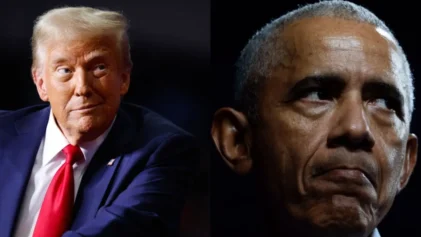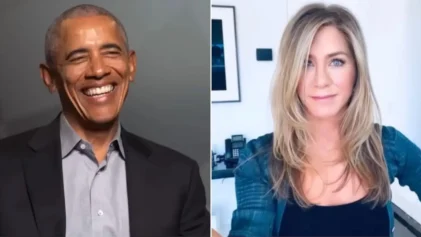In the African-American community and beyond, people have been craving for the president to speak out against gun violence and poverty in a personal way. They finally got their wish yesterday in Chicago, when Obama talked movingly about urban violence and compared himself to the young black males he met with at Hyde Park Academy, in the neighborhood where he started raising his own family.
The president’s Chicago visit was remarkable because, along with his visits to Atlanta and North Carolina, it reveals his focus on poverty and urban America that appeared to be missing thus far.
This was a president who didn’t seem afraid of reminding people that he is a black man, who wasn’t fearful about what Republicans might say if he shifted his attention to the nation’s poor.
“I had more of a safety net, but these guys are no different than me,” Obama said at Hyde Park Academy, where he met with students in an anti-volence program. “I had issues too, when I was their age. I just had an environment that was a little more forgiving.”
In a rare moment, Obama spoke of the pain of fatherlessness.
“Don’t get me wrong, as the son of a single mom … I turned out OK … but at the same time, I wish I had a father who was involved, around,” Obama said.
Hyde Park Academy is less than a half mile from the Obamas’ Chicago home and is in the neighborhood he represented as a state senator less than a decade ago. It is just a few miles from where 15-year-old Hadiya Pendleton was fatally shot and her parents were in the audience to hear his speech.
Before he began speaking, Obama warmly greeted the mostly black crowd by saying, “Have a seat. You all relax. It’s just me. You all know me.”
In his speech, Obama linked gun violence to other issues that are roiling urban communities.
“For a lot of young boys and young men in particular, they don’t see an example of fathers or grandfathers, uncles, who are in a position to support families and be held up in respect,” Obama said. “And so, that means that this is not just a gun issue, it’s also an issue of the kinds of communities that we’re building.”
During his swing through North Carolina, Georgia and Chicago, the president promoted several antipoverty proposals, including initiatives to spur manufacturing innovation centers; provide incentives to cities and states to make preschool available to all 4-year-olds; and raise the federal minimum wage from $7.25 to $9 per hour.
In Chicago, he announced the “promise zones” initiative, which will select 20 communities nationwide as laboratories for better coordinated federal, local, nonprofit and private-sector investments. The initiative is aimed at revitalizing long-distressed areas. The communities chosen would be urban and rural areas that have persistent problems such as high joblessness and crime rates, low rates of high school graduation and college attendance and health concerns among residents.
Obama also announced a new competition for high schools — using federal money to encourage schools to emphasize science, technology and “real world” learning.
While advocates were encouraged by Obama’s new focus, there was disappointment over the relatively small size of the new plans.
“There’s certainly a new energy and new verbal emphasis,” Brett Theodos, a senior researcher at the Urban Institute, a policy think tank in Washington, told the Los Angeles Times. “That said, the amount of actual budgetary resources devoted to these efforts is more akin to demonstration efforts or target trials.”
But others were pleased that the president was highlighting an area that has been neglected for years.
“When he comes, his administration comes behind him,” said the Rev. Michael Pfleger, pastor of St. Sabina Catholic Church, who was in the audience in Chicago.
“Aurora, Tucson, Connecticut is not urban America,” Pfleger said. “This is saying we’re recognizing in America what we’ve been ignoring for a long time. The primary victim of violence in this country has been black and brown, and America has ignored it. So now he’s putting the attention on it.”
In an appearance on Melissa Harris-Perry’s MSNBC show on Saturday, White House adviser Valerie Jarrett, a native Chicagoan, said the president has always been interested in poverty. She added that after spending much of his first term trying to fix a badly wounded economy, it was now a natural progression for Obama to begin focusing attention on the poor.


